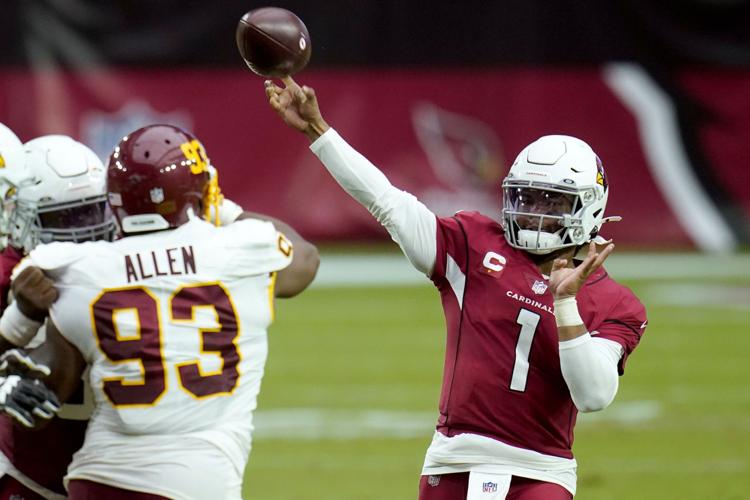PHOENIX — Urged on by sports teams, Native American tribes and the Governor’s Office, state lawmakers gave the first nod to vastly expanded legal gaming in Arizona.
The far-reaching legislation approved Tuesday by the House Commerce Committee would legalize the ability of Arizonans to wager on professional and college sports. Betting on fantasy sports also would become legal if House Bill 2772 becomes law. Off-track betting locations and service organizations would have the right to legally offer keno.
The 9-1 vote followed testimony by a parade of lobbyists for professional sports organizations.
Several told of the financial woes the teams faced after the pandemic shortened their seasons. They see legal wagering, and the money the teams would generate, as a lifeline.
The plan, if approved, would generate anywhere from $20 million to $42 million a year for the state general fund, money that lawmakers could use for new or expanded programs or to grant tax cuts.
Rep. Pamela Powers Hannley, D-Tucson, cast the only dissenting vote.
“Gambling is an addiction,” she said. “People lose their homes and their livelihoods from gambling. We need to realize that we could have unintended consequences from expansion of gambling.”
The Tucson lawmaker also said she is not convinced the private companies that would be hired by sports teams and franchises to run the operations would properly store and protect private information of those who place their bets online.
Provided to YouTube by Sony Music Entertainment
I'll Always Love My Mama · The Intruders
Save the Children
℗ 1973 Sony Music Entertainment
Released on: 1973-01-01
Composer, Lyricist, Producer: Kenneth Gamble
Composer, Lyricist, Producer: Leon Huff
Composer, Lyricist: John Whitehead
Composer, Lyricist: Gene McFadden
Auto-generated by YouTube.
In fact, Powers Hannley said, this could provide the opportunity for companies to “geotrack” gamblers who wager through their smart phones.
Other lawmakers were more inclined to listen to the lobbyists, such as Rob Dallagher, who represents the Arizona Cardinals. The team, and others, would get the right to establish its own online and in-stadium wagering facility where people could bet not just on Cardinals’ games and football, but on any professional or college sporting event anywhere in the country.
He said the reality of the current situation is this: “If I wanted to go today and make a sports bet, there is a way for me to do that. What I’m not so certain about is, if I win, am I going to get paid, or is the person holding that bet for me using data that is legitimate to determine whether I won or lost that bet? “And this bill covers both of those.”
Amilyn Pierce, vice president of the Arizona Diamondbacks, said teams elsewhere have brought in new cash and improved their financial health because their home states gave the go-ahead for sports wagering after the U.S. Supreme Court in 2018 voided a federal law banning such gambling.
“We cannot let Arizona fall behind, putting our sports teams at a significant disadvantage in a competitive market,” she said.
Andrew Diss, speaking for the Arizona Coyotes, said his team had significant losses when the pandemic resulted in a shortened season and later, when playing was resumed but largely without fans present.
But, he said, “even though there were massive losses across traditional revenue streams, one area that saw a substantial rise was sports betting handle in the states where it’s legal.”
“Even though they weren’t able to pack the stands, it was clear that fans were still watching at home. And they were placing wagers.”
What’s in HB 2772 and a mirror bill in the Senate of SB 1797 are half of a deal that Gov. Doug Ducey cut with tribes, as they are renegotiating the gaming compacts first approved in 2002.
The tribes would get opportunities for additional locations for casinos and the right to operate new games such as craps and roulette. They, too, would be able to take in sports bets.
All the terms, however, have not been made public. Anni Foster, the governor’s legal counsel, said Ducey is entitled to approve new terms without the approval of lawmakers.
What does require legislative ratification is what the tribes would give the state in return: the right to operate new forms of off-reservation gaming that were prohibited in the 2002 deal.
But the package is tied together: The tribes don’t get expanded gaming if lawmakers don’t OK the new off-reservation games. Sports betting will be permitted only if tribes in the Phoenix and Tucson areas OK the final deal.
The measure now goes to the full House following a review of its constitutionality. No date has been set to hear the Senate version.
Everything you want to know about the lottery (including what to do when you win)
Five things to know about the Mega Millions drawing
UpdatedA banner is hung outside Ernie's Liquors in San Jose, Calif., where a Mega Millions winning ticket was sold in July 2018, worth $543 million. …
The chances of winning Mega Millions or Powerball are really slim -- it's less likely to bring home the big bucks than it is to get killed by a meteor strike, something scientists put at around 1 in 1.6 million.
But tickets for the next drawing are sold in 44 states, Washington, D.C., and the U.S. Virgin Islands. States not participating in the lottery are Alabama, Alaska, Hawaii, Mississippi, Nevada and Utah.
I WON! I WON! NOW WHAT!
UpdatedLottery officials recommend winners take a deep breath, put their winning ticket in a safe spot and consult with a reputable financial planner before popping over to the lottery headquarters. Their first decision is whether to take the cash option, or an annuity, with one initial payment and annual installments over 29 years. Nearly all winners opt for cash, but the annuity has advantages, as it reduces the tax bill a little and offers a stable flow of income that climbs by 5 percent annually.
HOW LONG DO I HAVE TO CLAIM THE JACKPOT?
States have different rules, so depending on where you purchased the ticket, you have from 180 days to a year.
DO I GET MY MONEY INSTANTLY?
No, you can't just cash one of those oversized checks shown in all the winner photos. Payment speed also varies by state, but a week or two is common. Carole Gentry, a spokeswoman for the Maryland lottery, said the requirement is seven to 10 days in that state.
Can I keep it a secret?
UpdatedWinners can remain anonymous in six states — Delaware, Kansas, Maryland, North Dakota, Ohio and South Carolina. In Arizona, people who win more than $600 can keep their names secret for 90 days after claiming prizes, but after that names are public record. In Michigan, winners are anonymous unless they win Mega Millions or Powerball prizes.
WHAT ABOUT TAXES?
For winners of $5,000 or more, all states automatically deduct 24 percent in federal taxes but state taxes vary widely. Some big states, including California, don't withhold taxes from lottery winnings, and some like Texas don't have individual income taxes at all. For the others, the state takes a bite, especially in New York, where a winner would need to pay a state tax of 8.8 percent. Residents of New York City would pay an additional tax of 3.9 percent. In general, taxes eat up nearly half of winnings.
Melissa Labant, a tax policy expert at the American Institute of Certified Public Accountants, said winners should realize that while taxes are initially withheld when prizes are awarded, more money will likely be due at tax time as people suddenly are in up to a 37 percent tax bracket.
"That catches people off guard," she said. "You have to be prepared to write another check to the IRS in April."
WHAT ARE MY TAXES IF I DON'T LIVE IN THE STATE WHERE I BOUGHT THE TICKET?
This can get complicated, but for the most part winners pay taxes where they bought the ticket and then can get a credit on their taxes in their home state. The final tax bill can depend on if the state where you live taxes at a higher or lower rate than where you purchased the ticket. Rules vary by state, so this is a good topic for that financial planner.








